F L A U N T

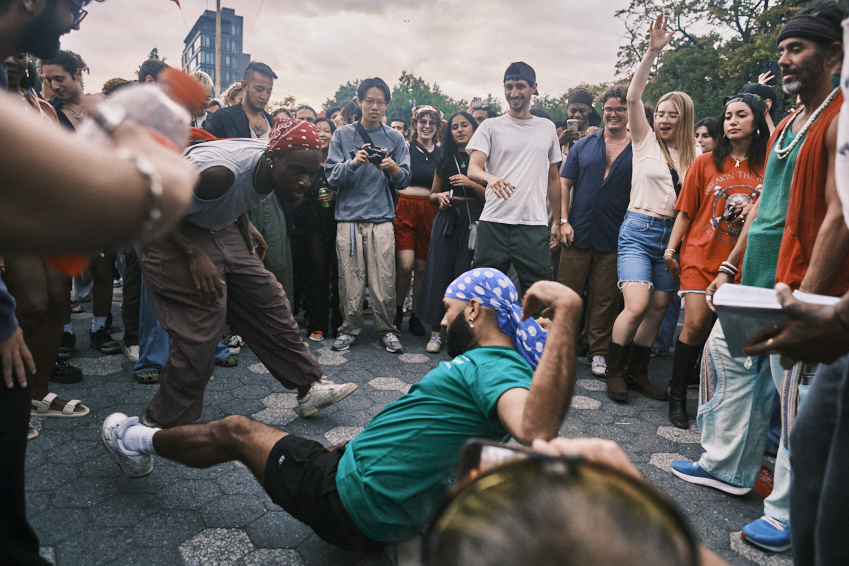
You peer above heads bobbing up and down, thrown back in glee or twisting side to side, trying to catch a glimpse of the DJ booth. You see a man leaning over the turntables, headphone-cushion nestled between his left ear and shoulder. That’s Mickey. You notice his floral bucket hat and the curly brown hair beneath it. The shirt he’s wearing says “Young Latin and Proud,” a nod to the song by Helado Negro. Slices of sun toss themselves over the west side of the amphitheater into the tide of bodies, excitement swirling as though there were real cake in the crowd. It’s not an unlikely possibility—Mickey’s birthday was just yesterday, after all. The BPM builds, Latin and Afro house moving limbs under the sun’s pulse.
To Mickey’s left is a man sporting two small buns that hover above his tall, broad-shoulders, framing the gold chain that hangs around his neck. That’s Toribio. You see him hugging people off to the side before turning to the tubs of vinyl behind the deck, gearing up for a Fugees remix of “Killing Me Softly” that gets the whole crowd belting, arms raised in the air.

Before you can ask what exactly is this thing happening in the middle of Brooklyn, Toribio bellows into the mic: “Yes, it’s Public Service, but you already knew thattttttt.”
Now in its 4th season, Public Service isn’t just any party. There are no covers, no queues for entry, no bouncer to check your ID. The party is free and open to all, counting on the regulars to show up and shake it while sending invitations via sonic vibration to the neighbors and rovers nearby. It’s the summer season’s open secret, nestled in the circular plaza of Maria Hernandez and the amphitheater in Herbert Von King, and occasionally in other venues as well; a place of contact, connection, joy, and of course, music.
It began in 2022, following a string of successful block parties dubbed “Baila” outside of La Superior, a Mexican taqueria in Williamsburg run by Felipe Mendez. The police shut down the third party since the event had no permits, but Toribio and Mickey decided they wanted to keep the jam going. The next year, with permits granted, they held the first official Public Service in Von King Park.
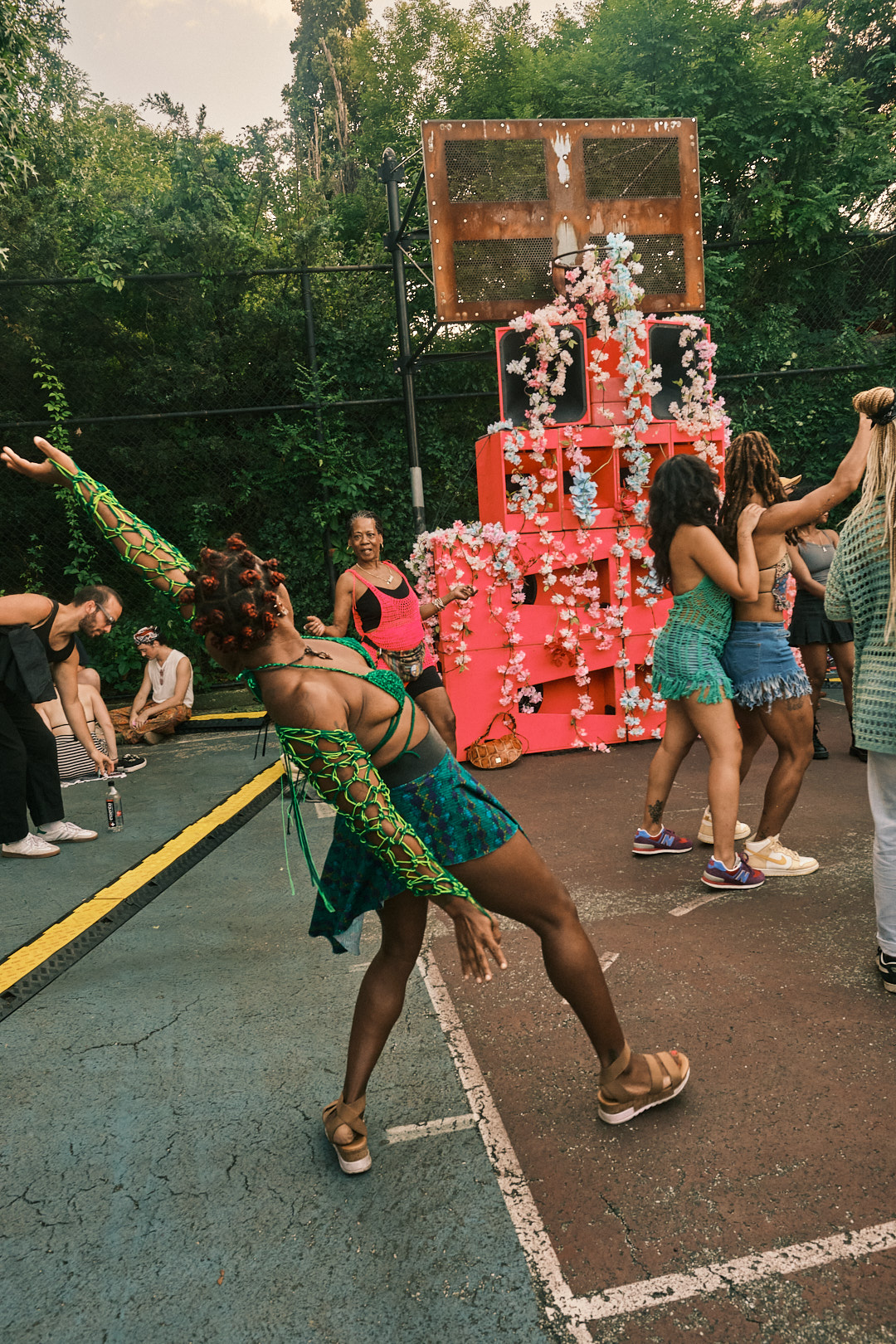
“It was good and also a disaster,” Toribio says of the first event. As the people started trickling in, the sound system they had borrowed kept shorting. Mickey ran back to his apartment to get his speakers, just a simple PA system, and kept the party rolling that way.
“It was probably 4:30 and people were still there. People were still there hanging because it was a beautiful day. And it's like, you know, people were supportive…When we finally started, people applauded the first song. I played Brenda Taylor ‘You Can't Have Your Cake and Eat It Too,’ and people started applauding,” Mickey relays to me over the phone.
When Karl (Karlala Sound) got in the mix, they could rely on things to run a lot smoother. Karl’s hot pink speaker system provides sound to parties like St. James Joy and Dance is Life, along with other community-based events throughout the city. The elevation Karl brings to these events isn’t just about the physical system he built himself, fit with battery packs that don’t rely on power outlets and generators. He actively manages the sound during the set, alchemizing the air by adjusting the mixers and volume from different points in the crowd. He explains, “there's that side of things which is just making sure everything stays clean, and then additionally there's the physiological…there's something called the Fletcher-Munson curve which is a graph of how sensitive we are to each frequency in our hearing range based on the volume, and it changes as the volume changes.” Loud but not harsh, clean but not without flair. Mickey and Toribio bring the meat of music, and Karl is the hot pink backbone to it all.
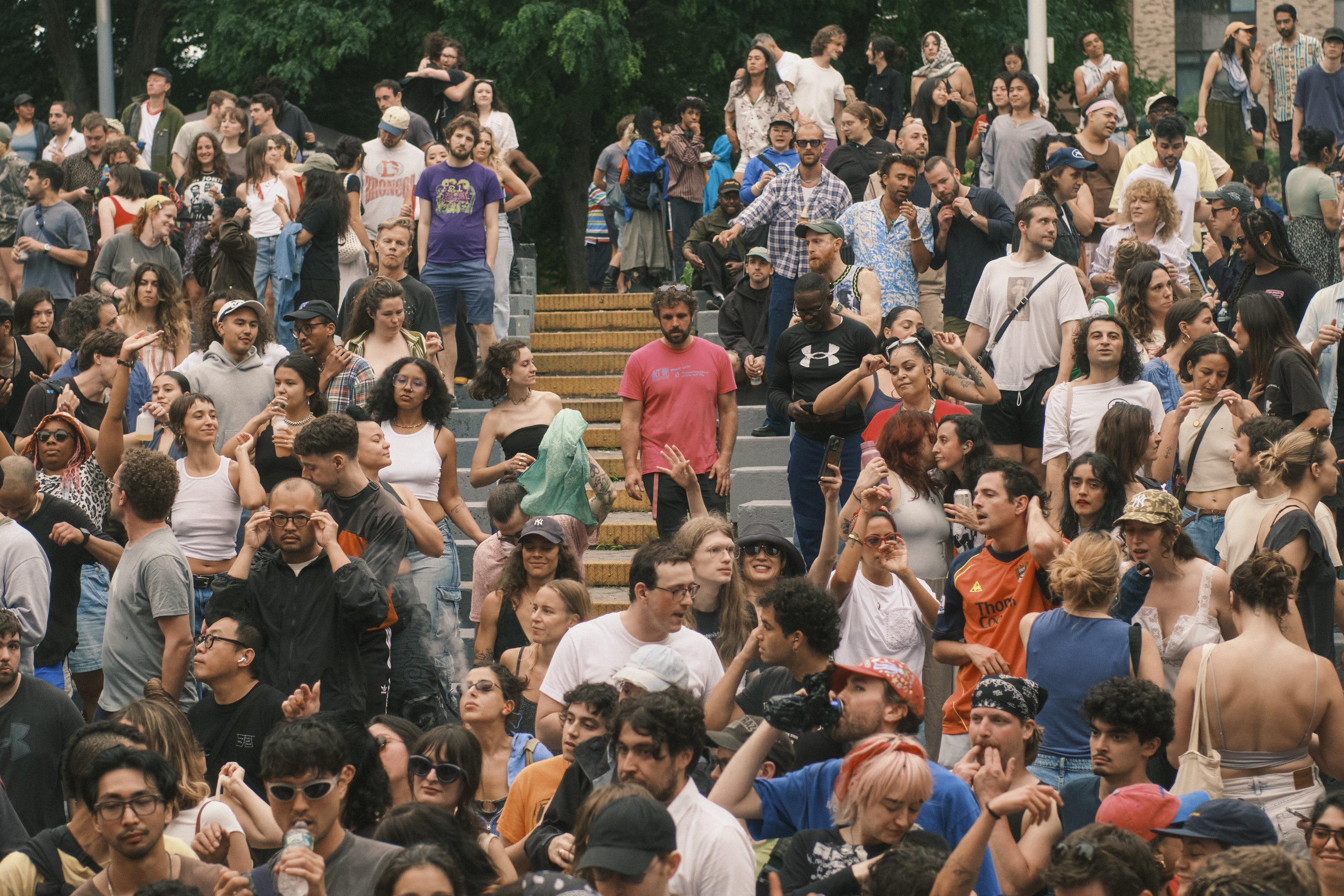
In many ways, Public Service is just another park jam, paying homage to the Black American tradition birthed in Brooklyn and the Bronx. Streets and parks in New York have long been a gathering place for cultural and creative expression, and Mickey and Toribio follow a lineage of people who’ve done this for decades. “We stand tall because we’re on a bunch of people’s shoulders that did this work before us you know,” Toribio states. “People who have been born and raised in these different neighbourhoods, it’s music in their lexicon that they understand too. And also for people that are transplants that just moved here and get to experience how powerful this thing is. We're lucky that we have parks still, that we can do these in a public space, for these connections to happen.”
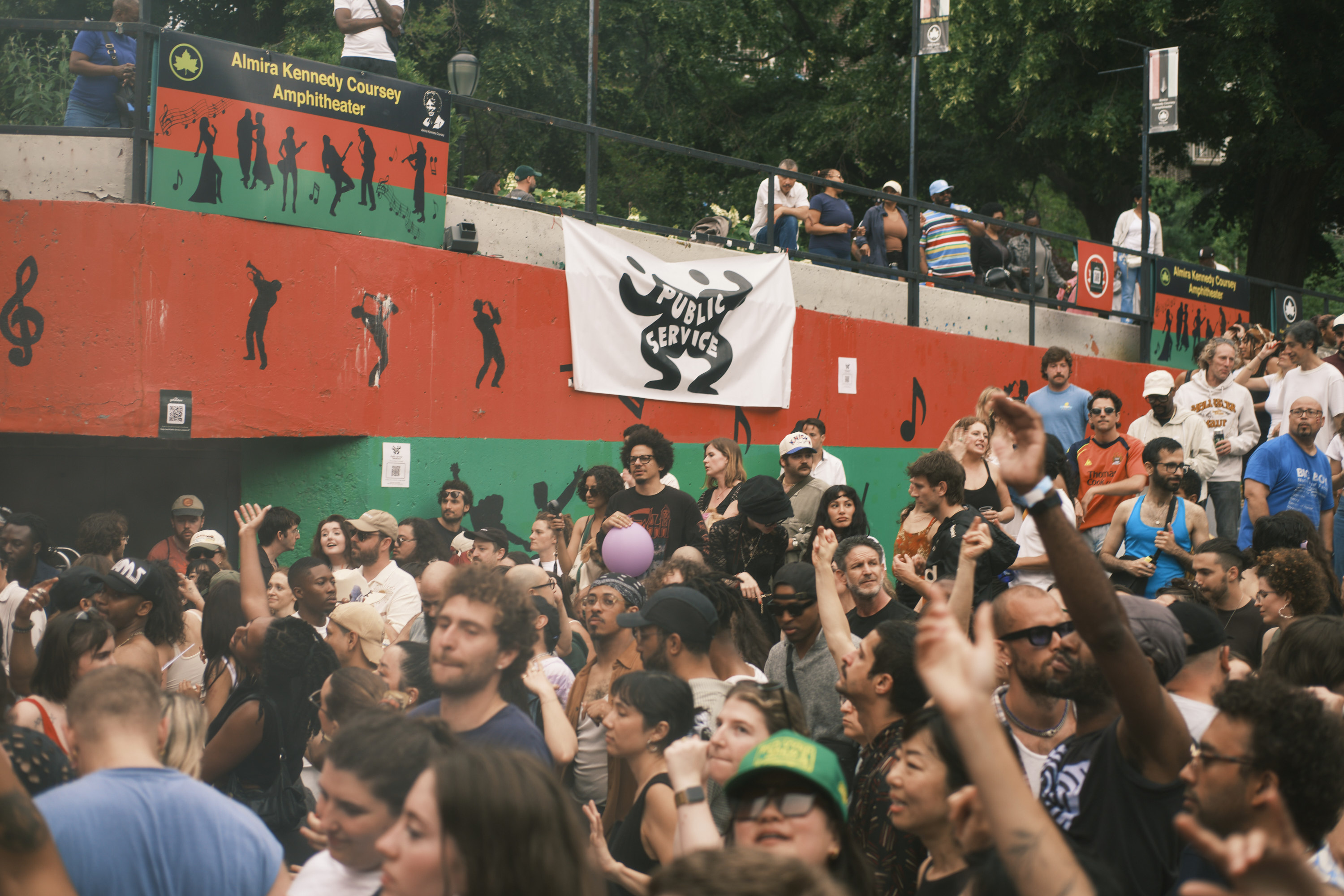
“You see footage of the 60s, of people doing block parties and park jams in New York. And so with that comes songs that are classics in that realm, you know, and I think there's that early recognition when we warm up.” Mickey says. “People that are coming in new, if they talk about Public Service in this particular way, I think it's like on us to educate them, at least in the history of New York.”
In their sets, Mickey and Toribio add to this lineage in their own ways with nods to their Latin roots, Mickey being Cuban-Ecuadorian and Toribio Dominican. You can hear these gestures when they’re in the booth, a bit of salsa and merengue mixed with house beats, busting classics like Juan Luis Guerra’s “Vale La Pena” to contemporary hits like Tokischa and Yomel El Meloso’s “Singamo.”
The crowds at Public Service teeter between those native to the neighborhood and people like myself, who moved to the city not long ago. With no barrier to entry, the intercultural, intergenerational, and interclass connections formed are what continue to make Public Service so special. In Bushwick and Bedstuy, where rapid gentrification and rising rents continue to displace long-term residents, Public Service provides an accessible space for connection across communities and classes. Around Herbert Von King’s amphitheater, vendedores ambulantes sell ice cream and waters to sweaty, dehydrated adults and kids begging their parents for a sweet treat. There’s a couple selling jerk chicken and mac and cheese who’ve sold out before I can get my post-party fill, and on the dance floor, a man with tattered shoes, clinging to his feet for dear life, is twirling a woman in polished heels round and round, exchanging smiles and laughter. A healthy community—a healthy city—needs these kinds of spontaneous connections, these cross-pollinations. As Toribio puts it, “music is the lubricant.”
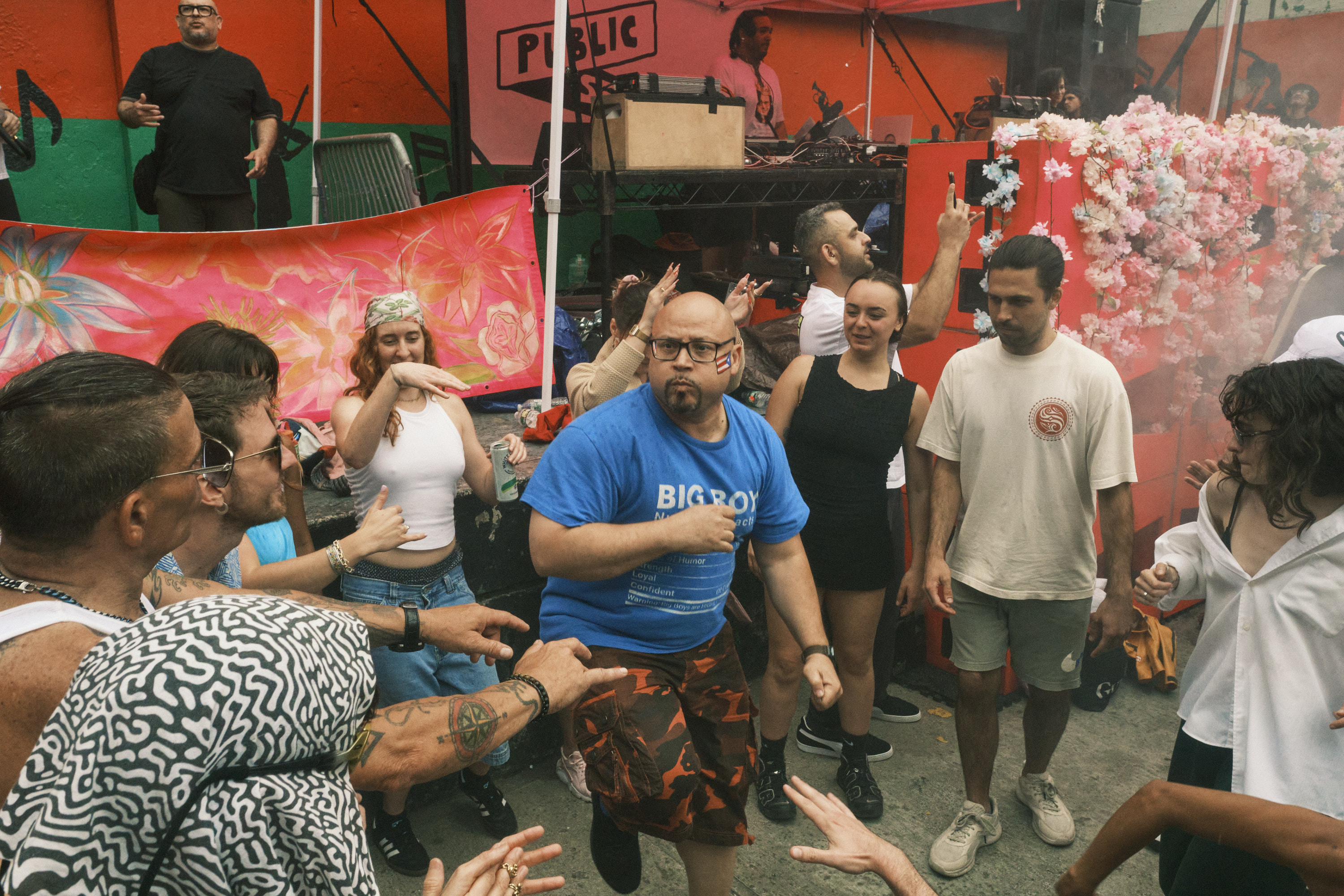
For those who’ve been before, and those who stumble upon it on their lazy Sunday afternoons, it’s apparent that Public Service is not just another shiny dancefloor to move about. The muscles that flex and bevel aren’t practicing the kind of hedonism that seeks a careless self-abandon, the feeling one might chase into the dark corners of a club. The communal current one feels here is something that requires you to tune into yourself, to go deeper—“to make space and move the furniture around” as Toribio puts it. “It starts with the individual and thus with that, with all the different parts within yourself that are able to connect, then you do that next to people enough, then externally, you start to connect.”
By 7:30pm the sun starts to set, matching Karl’s speakers with a paler shade of pink as if to signal it hears us—the hearts hammering to the beat, the shoes knocking their soles on the pavement, the laughter slipping from mouths. It’s around this time that Public Service’s final song begins to play: “Todo Tiene Su Final” by Héctor Lavoe and Willie Colón. It’s how Mickey and Toribio end every Public Service, a bittersweet goodbye to the day, to the dance, to the music. Dancers twirl to the trumpets, giving it their all with their footwork, and I look around one last time. I’m not the only one. I look up and see others watching from the amphitheatre’s railing, taking in Lavoe’s words with the air we’ve pushed and pulled with our bodies. “Nada dura para siempre,” but for now, we hold onto a joy that inspires a deep gratitude for this space, the people that shape it, and as Toribio put it best, “that real feeling that everyone gets to touch at the same time.”
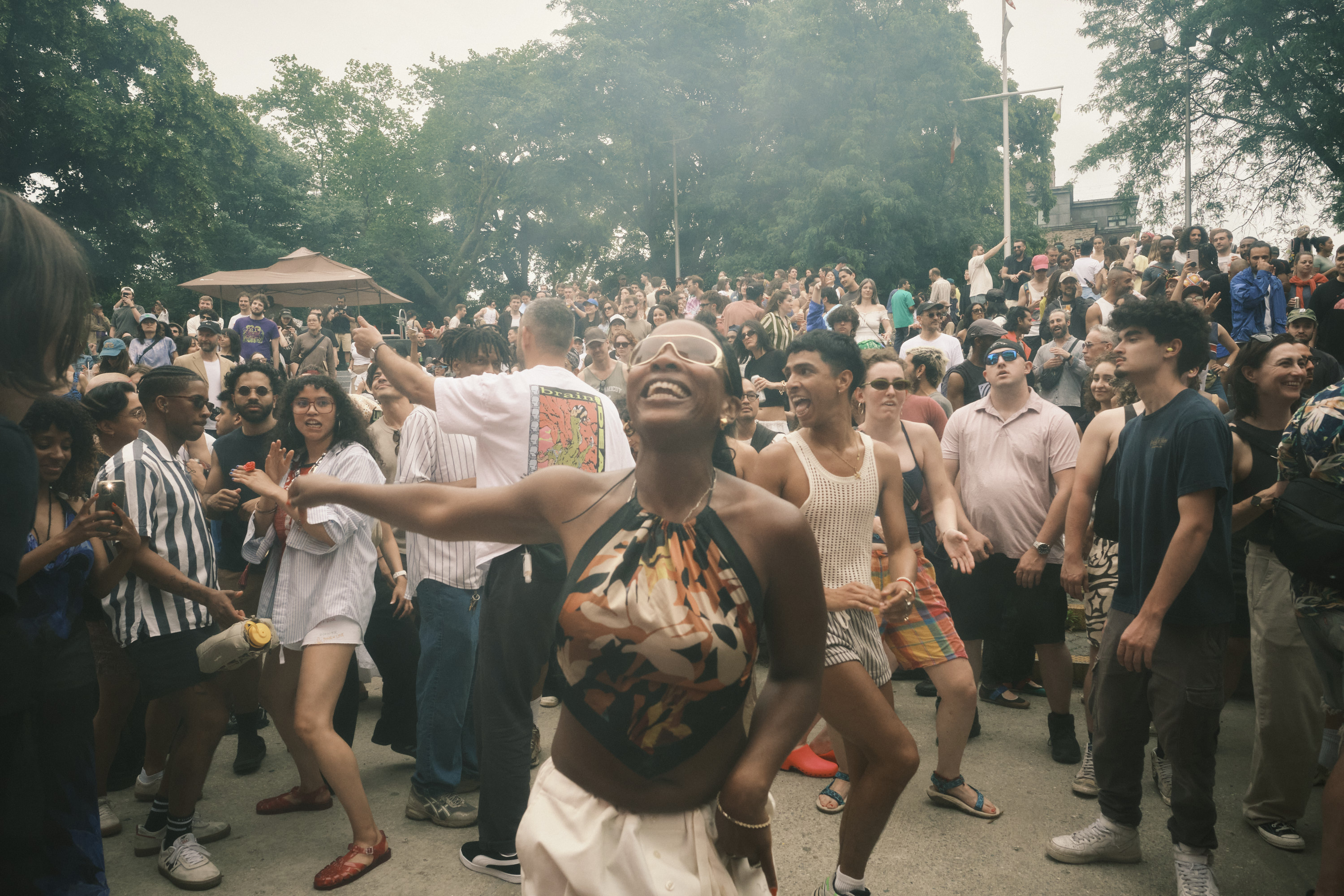
…
Public Service is currently raising money for its 4th season. By the people for the people, this party is made possible through donations from the community. Donate here to support.